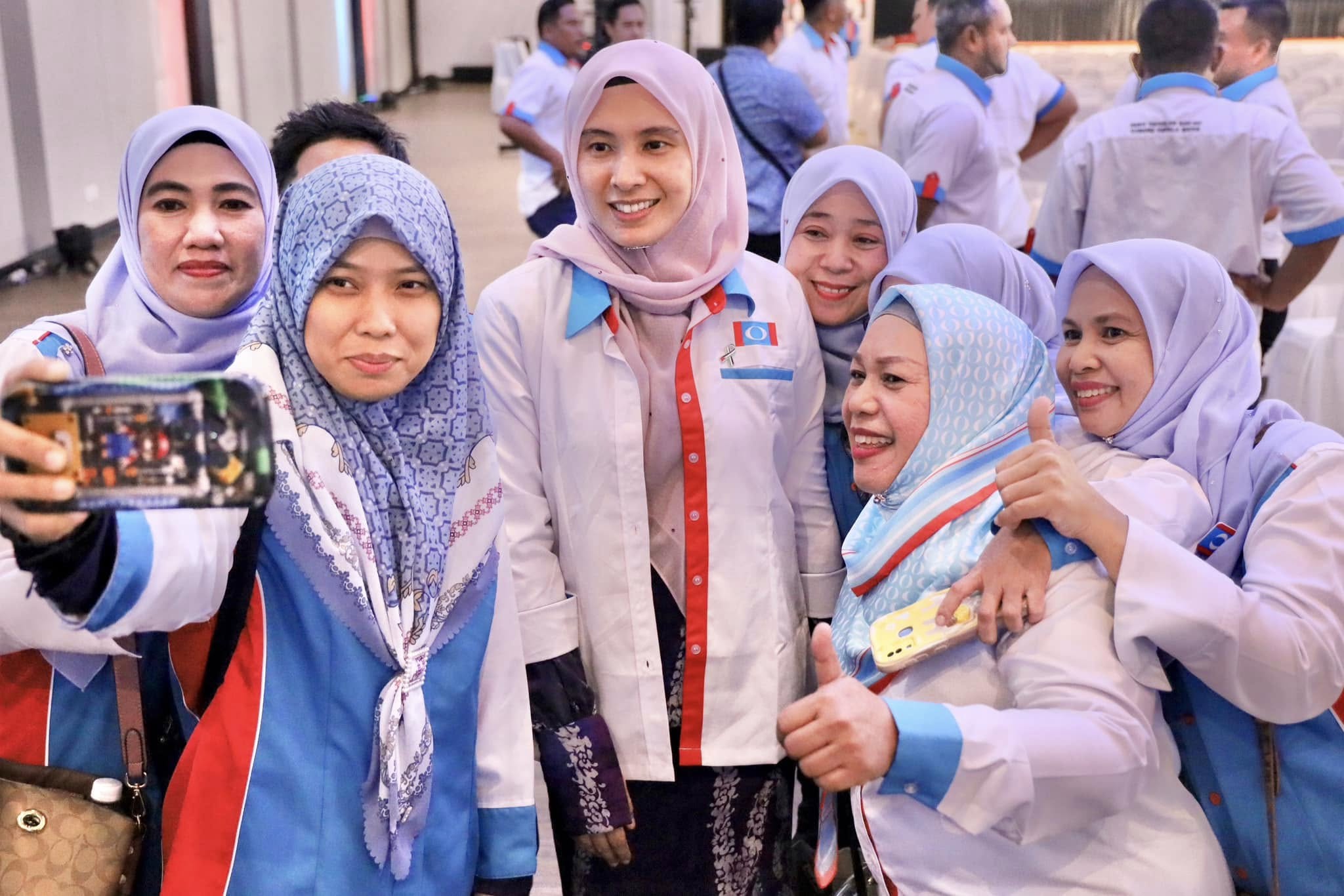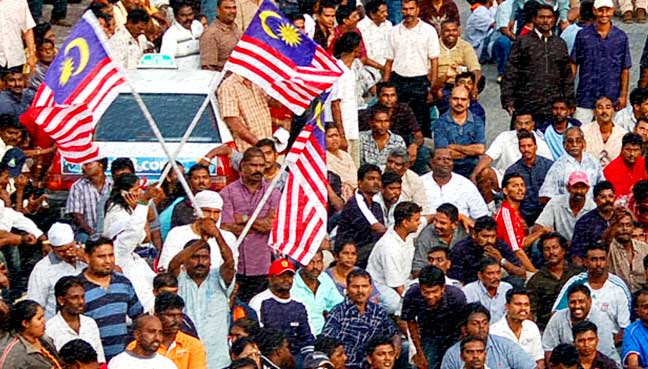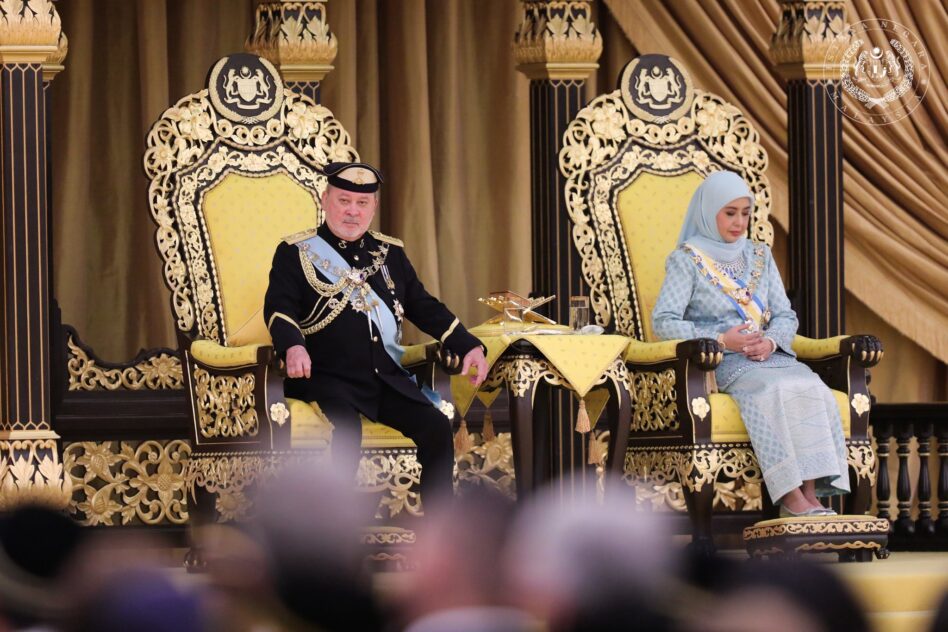Editor’s Note: The recent appointment Nurul Izzah Anwar as executive chairwoman of think tank, Polity, somehow coincides with the recent appointment of Datuk Nurulhidayah who is the daughter of Deputy Prime Minister and UMNO president Datuk Seri Dr Ahmad Zahid Hamidi to the Universiti Putra Malaysia’s (UPM) board of directors.
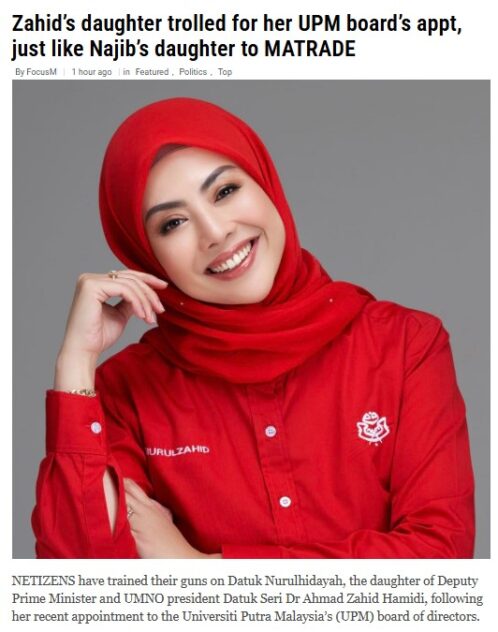
IT IS not uncommon for individuals who have lost their parliamentary seats to take up new roles in think tanks or other organisations.
In this context, Nurul Izzah Anwar, the former Permatang Pauh MP and daughter of Prime Minister Datuk Seri Anwar Ibrahim, has been fortunate to transition into prominent positions within two think tanks – the Socio-Economic Research Initiative (SERI) and Polity – in a short period.
While Nurul’s capabilities and potential for leadership are undeniable, her family connection to PMX inevitably invites allegations of nepotism and favouritism.
As the new SERI chairperson which focuses on evidence-based research for social change as well as the executive chairman of Polity which aims to empower women and youth, she assumes roles with significant social impact.
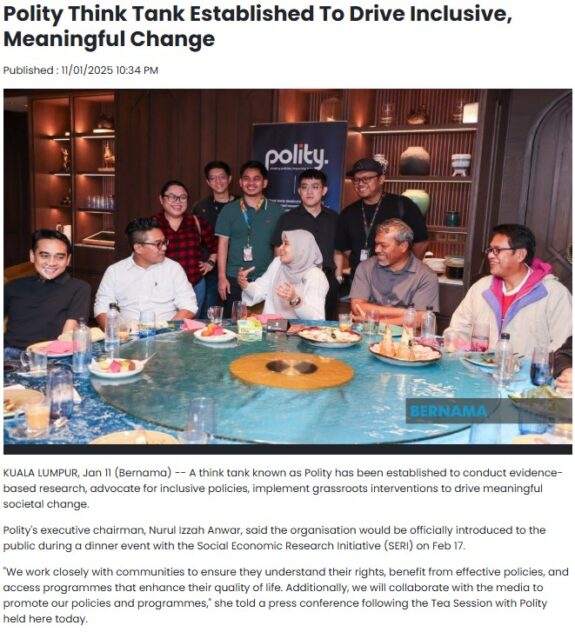
Family ties
However, these appointments come with challenges. Regardless of her merit, the perception of nepotism cannot be easily dismissed.
Even if Nurul is the most qualified candidate, the shadow of her family ties may overshadow her professional abilities.
This reality highlights a persistent dilemma in public and political life: the tension between merit-based appointments and the influence of familial connections.
It is unfortunate that Nurul’s credentials and experience will be scrutinised under the lens of her father’s position.
Such scrutiny not only undermines her achievements but also reinforces a broader issue in governance – how family links – even in cases of genuine merit – complicate public perception.
While Anwar may not have had a direct role in his daughter’s appointments, the optics of her selection will undoubtedly fuel criticism.
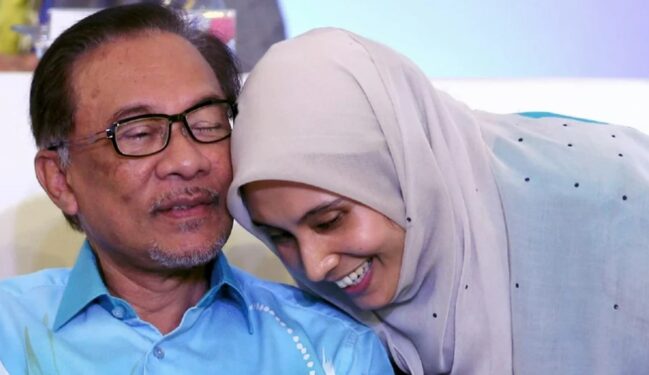
Tough decision
Whether Nurul Izzah should resign to preserve her integrity or continue and prove herself through action is a decision only she can make.
Yet, it is worth noting that stepping down solely to avoid allegations might deprive the organisations of a capable leader.
Already under scrutiny for various issues, the Madani government can ill afford perceptions of nepotism and cronyism. Addressing these concerns requires not only transparency in appointments but also clear communication about the qualifications and selection process.
Ultimately, Nurul Izzah’s challenge will be to demonstrate her worth through measurable results.
Her success or failure in these roles will determine whether her appointments are viewed as acts of nepotism or genuine meritocracy.
However, the broader question remains: How can public institutions ensure that capable individuals are given opportunities without their family connections casting a shadow over their achievements? – Jan 13, 2025
Former DAP stalwart and Penang chief minister II Prof Ramasamy Palanisamy is chairman of the United Rights of Malaysian Party (Urimai) interim council.
The views expressed are solely of the author and do not necessarily reflect those of Focus Malaysia.
Main image credit: Nurul Izzah Anwar/Facebook


